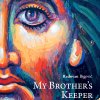Dear Readers,
The world of Serbica Americana is a captivating place — the more you know about it, the more interesting it gets. Never has it been so vital to understand how issues in the Old or New Country impact our lives and business. (...and never has information and dialogue about both Old and New been so easily accessible.)
As you already know, only Serbica Americana links the events around the world and brings you all you need to know, plus other stories which are just too good to miss -- thus aspiring to contribute to this dialogue.
Serbian interest in the history of the Diaspora, the search for its puzzles and the will of God in it, reveals a faith in the future, in God’s providential presence and labor throughout history.
The life of the Serbian community in the USA unfolds on the field of dramatic history which is interwoven with God’s providence. A great number of Serbs who find themselves for longer or shorter periods of time spread out throughout the world – often departing after difficult deliberation – remain connected to the land of their birth or ancestry, living a 'double consciousness'...
Departing into the Diaspora could be compared to leaving to a “monastery,” as a type of alienation followed by deprivation, fasting, prayer… (forms of a struggle or podvig that balances a person's aspirations against his inclinations.) It appears that the lone institution which can today sustain the continuation and connection of Serbs throughout the world is the Serbian Orthodox Church, more than anything else because of the quality which we call togetherness ("sabornost"). This in itself brings an enormous responsibility. It is our deepest conviction that the Church plays this uniting role among the Serbian people thanks to her eschatological dimension and ability to accept history on account of her children.
You are invited to once again join the many curious readers of Serbica Americana around the world who rely on the in-depth analysis and insightful commentary that only Serbica Americana delivers.




